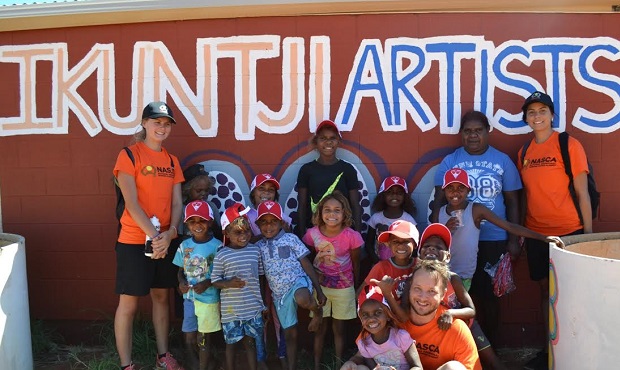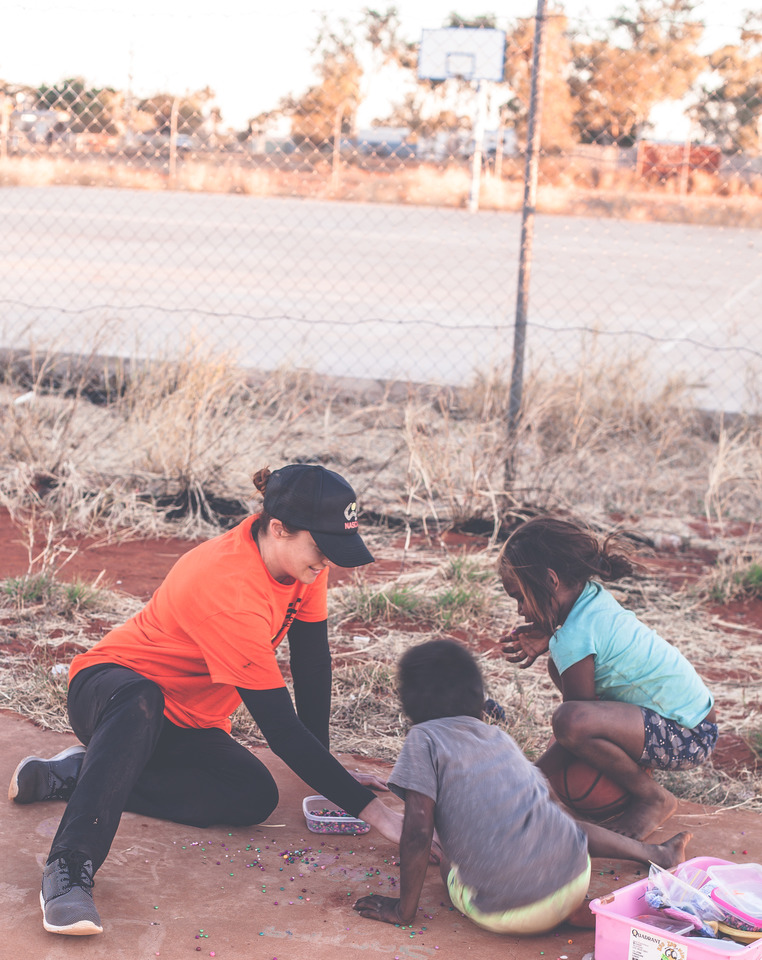Imagine seeing the ocean for the first time
Imagine seeing the ocean for the first time. This was one of many life-changing experiences that young people from...
The new girls struggled to communicate with students and teachers as they could not speak Luritja. This made the girls withdrawn, their shyness making it hard for them to engage in class. NASCA’s Team Leader James, honed in on what was comfortable for the girls by asking them to teach him some words in Pitjantjatjara and Arrernte. This interested the other students who all spoke Luritja. Lisa, Tanya and others then compared different words and enjoyed sharing them with other students and with NASCA.

This simple exercise had a great flow-on effect. As the week continued the two girls’ identity was recognised as being unique and was valued by other students. NASCA also ran structured softball sessions which gave Lisa and Tanya the opportunity to have more ‘fun time’ with their peers. This helped the girls to settle into their new school – setting them up to improve their numeracy and literacy levels. The sisters gained confidence and to make a positive association with school as a comfortable and fun place to be.
Friendship and peer relationships are a major influencing factor for Aboriginal kids to attend school. Friends provide social and emotional support as well as help academically in class. The likelihood of Lisa and Tanya having high quality engagement in class was very much dependent on making new friends and feeling accepted.

Girls Club – a staple of NASCA’s NT program, is an opportunity for girls and young women to socialise in an informal and creative environment. Girls Club enabled Tanya and Lisa to connect with other girls and women from Haasts Bluff and to make new friends.
Because of their age the teachers initially put the girls in the senior primary class to see how they would go. If the girls were not able to adapt, they would be moved down. Fortunately, their confidence and engagement increased – meaning they could stay in the senior, age-appropriate class. Towards the end of the week-long program both girls’ self-confidence had grown. They contributed to school tasks, showed confidence to speak up in group work and had a new circle of friends.
When students communicate positively with their peers and support each other they will engage better with school life as a whole. Students and community members regularly reflect on how NASCA makes the school “a fun place.” Teachers also reflect that with NASCA’s support students not only attend school, but are more actively engaged in class.
Now with a circle of new friends, Lisa and Tanya can confidently continue to grow in Haasts Bluff.
(Names of children changed to protect privacy)
Help young Aboriginal and Torres Strait Islanders stay strong in their culture and identity.